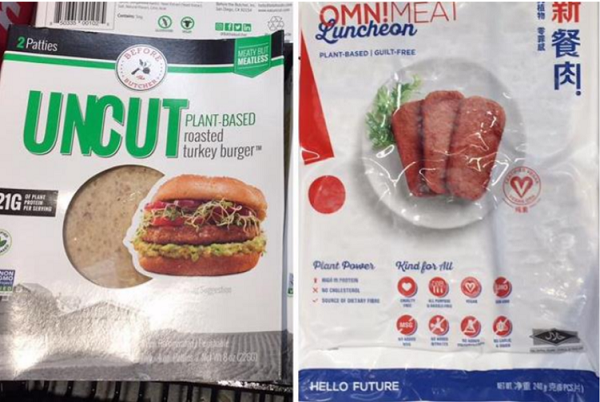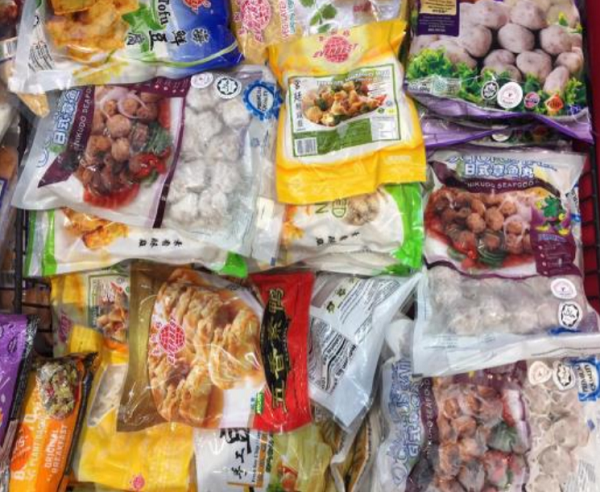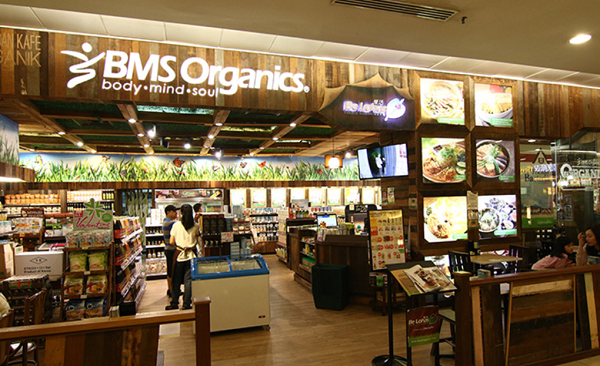Rapidly growing Vegetarian・Vegan market in Malaysia|What is the vegetarian・vegan market trend?
Lately, we have been seeing more and more news related to "vegetarian and veganism" and "meat alternatives" in Japan, but what about Malaysia?
We have summarized the trends of Malaysia’s vegetarian and vegan market in this article.
 The popularity of Japanese food, anime, and Japanese culture is growing among Malaysians.
The popularity of Japanese food, anime, and Japanese culture is growing among Malaysians.
This desire and admiration for Japan has led to an interest in Japanese culture, which in return resulted in growing popularity in Japanese food. Japanese food have always been known for being healthy and safe, and with the consumer’s trust in Japanese produce, Japanese vegetarian and vegan food produce is thought to surely receive a reputation.
Since the outbreak of Covid-19, many industries have been badly affected by the economic downturn. In contrast, the internet business such as e-commerce sites etc, have benefited from this occurrence. The mid to high income earners also have a tendency to spend their budget for recreation and leisure onto eating out and purchase of high-end ingredients.
 Malaysia is a multiracial nation with a diverse ethnicity of Malays (69%), Chinese (23%) and Indians (7%), and different religion and cultural beliefs.
Malaysia is a multiracial nation with a diverse ethnicity of Malays (69%), Chinese (23%) and Indians (7%), and different religion and cultural beliefs.
Many Malaysian Malays are Muslim with Islam as their main religion. Muslims are prohibited from consuming alcohol and pork as per their religious beliefs. Even if it is pork and alcohol free, many still refrain from consumption as it is not halal certified (in accordance with Islamic standards).
Other than choosing a vegetarian and vegan lifestyle for personal beliefs and reasons, or because of cultural customs of sharing offerings and food given at sacrificial festivals, there is in general, a very small portion of the population that is vegetarian or vegan.
Many Malaysian Chinese are either Buddhist, Christian or Taoist, with many vegetarians among devout Buddhists although they’re numbers are small in comparison to overall proportions. That being said, there is a market for Chinese Buddhist products that do not contain the five pungent spices (onions, garlic, leeks, shallots, scallions (green onions) and chives). There is also a number of people, mainly from the high income group, that chose to be vegetarian and vegan for health and environmental reasons.
The largest vegetarian group is from the Malaysian Indian community. Although there is rarely any separation between “Vegetarian” and “Non-vegetarian” dining areas, there is still a lot of vegetarian restaurants with vegetarian menus.
 A simple restaurant search on「HappyCow.net (https://www.happycow.net/)」shows that there are around 260 restaurants in Kuala Lumpur, 222 in Penang, and 131 restaurants in Johor Bahru.
A simple restaurant search on「HappyCow.net (https://www.happycow.net/)」shows that there are around 260 restaurants in Kuala Lumpur, 222 in Penang, and 131 restaurants in Johor Bahru.
「Veggie Vagabonds (https://veggievagabonds.com/)」is an informative website for vegetarians, that states restaurants that have “meatless” options even though they are not specialized vegetarian restaurants, catering to all 3 main ethnicity in Malaysia.
One of the chains that specializes in healthy food is BMS Organics. They sell vegetarian and organic produce and not to mention, has a vegetarian restaurant as well. BMS Organics has a few chains around Kuala Lumpur with most of their customers from the mid to high-level income group.
Other than BMS Organics, there are a lot more smaller specialty stores and a small amount of large enterprises.
In the retail scene, it is common to rely on the knowledge and expertise in handling Japanese food products of Malaysian importers and wholesalers, as well as specialty and health food stores in dealing with vegetarian and vegan food products.
Vegan products are essentially a part of Japanese food products, therefore, Malaysian importers and wholesalers who currently handle Japanese food products are deemed potential business partners.
It is important to clearly identify and appeal the differences between vegetarian and vegan products from abroad to those that are already sold in Malaysia through the "differentiation selling points" (e.g., made from 100% Japanese ingredients).
We hope this article will be useful for Japanese companies who are considering of expanding into Malaysia.
This report was prepared for the Sapporo Industrial Promotion Foundation.
This article has been prepared in collaboration with ASIA INFONET (M) SDN BHDa provider in support services for food exportation from Japan. Main business profile
While we try our best in making sure the information provided in the contents and articles of this site is as accurate as possible, we do not necessarily guarantee the accuracy of the content. Unauthorized reproduction of content is prohibited.
We have summarized the trends of Malaysia’s vegetarian and vegan market in this article.
Prospects of Japanese vegetarian・vegan food produce in Malaysian markets

This desire and admiration for Japan has led to an interest in Japanese culture, which in return resulted in growing popularity in Japanese food. Japanese food have always been known for being healthy and safe, and with the consumer’s trust in Japanese produce, Japanese vegetarian and vegan food produce is thought to surely receive a reputation.
Since the outbreak of Covid-19, many industries have been badly affected by the economic downturn. In contrast, the internet business such as e-commerce sites etc, have benefited from this occurrence. The mid to high income earners also have a tendency to spend their budget for recreation and leisure onto eating out and purchase of high-end ingredients.
Vegetarianism by Malaysian ethnicity

Many Malaysian Malays are Muslim with Islam as their main religion. Muslims are prohibited from consuming alcohol and pork as per their religious beliefs. Even if it is pork and alcohol free, many still refrain from consumption as it is not halal certified (in accordance with Islamic standards).
Other than choosing a vegetarian and vegan lifestyle for personal beliefs and reasons, or because of cultural customs of sharing offerings and food given at sacrificial festivals, there is in general, a very small portion of the population that is vegetarian or vegan.
Many Malaysian Chinese are either Buddhist, Christian or Taoist, with many vegetarians among devout Buddhists although they’re numbers are small in comparison to overall proportions. That being said, there is a market for Chinese Buddhist products that do not contain the five pungent spices (onions, garlic, leeks, shallots, scallions (green onions) and chives). There is also a number of people, mainly from the high income group, that chose to be vegetarian and vegan for health and environmental reasons.
The largest vegetarian group is from the Malaysian Indian community. Although there is rarely any separation between “Vegetarian” and “Non-vegetarian” dining areas, there is still a lot of vegetarian restaurants with vegetarian menus.
Vegetarian and vegan speciality stores in Malaysia

「Veggie Vagabonds (https://veggievagabonds.com/)」is an informative website for vegetarians, that states restaurants that have “meatless” options even though they are not specialized vegetarian restaurants, catering to all 3 main ethnicity in Malaysia.
One of the chains that specializes in healthy food is BMS Organics. They sell vegetarian and organic produce and not to mention, has a vegetarian restaurant as well. BMS Organics has a few chains around Kuala Lumpur with most of their customers from the mid to high-level income group.
Other than BMS Organics, there are a lot more smaller specialty stores and a small amount of large enterprises.
Appropriate business category to sell to
Sales channels for vegetarian and vegan food products in Malaysia are limited to health food specialty stores, restaurants, certain drugstores, retail stores, and mail order. At the time being, as there are very little restaurants that offer vegan menus, the retail market is currently considered larger than the commercial market such as restaurants, etc.In the retail scene, it is common to rely on the knowledge and expertise in handling Japanese food products of Malaysian importers and wholesalers, as well as specialty and health food stores in dealing with vegetarian and vegan food products.
Vegan products are essentially a part of Japanese food products, therefore, Malaysian importers and wholesalers who currently handle Japanese food products are deemed potential business partners.
It is important to clearly identify and appeal the differences between vegetarian and vegan products from abroad to those that are already sold in Malaysia through the "differentiation selling points" (e.g., made from 100% Japanese ingredients).
We hope this article will be useful for Japanese companies who are considering of expanding into Malaysia.
This report was prepared for the Sapporo Industrial Promotion Foundation.
This article has been prepared in collaboration with ASIA INFONET (M) SDN BHDa provider in support services for food exportation from Japan. Main business profile
|
While we try our best in making sure the information provided in the contents and articles of this site is as accurate as possible, we do not necessarily guarantee the accuracy of the content. Unauthorized reproduction of content is prohibited.
« 自動車・バイク・機械 業界調査レポート | Import restrictions and market trends of Ja... »





